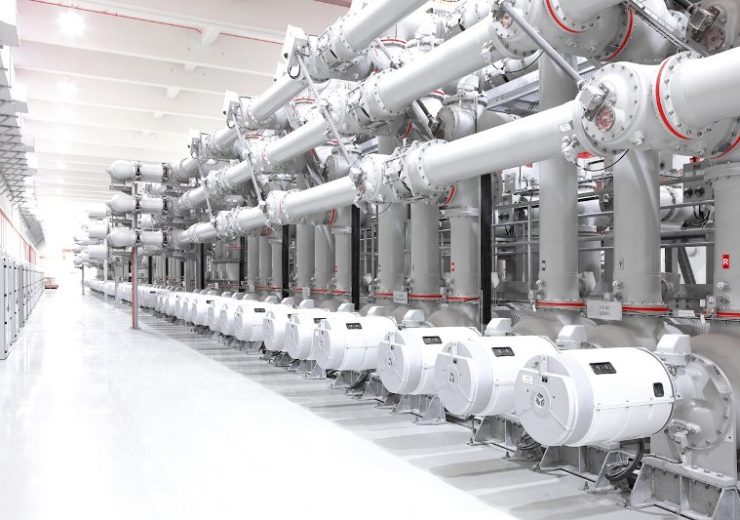Under the contract, ABB will supply GIS for the construction of a transmission grid in the country

Image: GIS is a metal-encapsulated switchgear that deploys pressurised insulating gas. Photo: Courtesy of ABB.
Swiss-based automation technology provider ABB has signed a five-year framework contract worth more than $100m (£81m) with Austrian Power Grid (APG), Austria’s independent transmission system operator, to supply gas-insulated switchgear (GIS) in Austria.
Under the contract, ABB will supply GIS for the construction of a transmission grid aimed at strengthening the infrastructure for the gradual integration of electricity generated by more renewable sources.
ABB power grids business president Claudio Facchin said: “With advanced technologies that are enabling a sustainable energy future, ABB Power Grids is at the forefront of integrating and transmitting renewable energy.”
ABB’s GIS enables smart, safe and green grid
According to the company, renewable energy is difficult to predict and causes load fluctuations and its integration into the power grid needs a strong transmission infrastructure.
The network has been designed to connect wind power generators in eastern Austria to pumped storage power plants in the western part of the country.
In addition, the network would also transport surplus solar and wind power to pumped storage power plants in the Alps for storing electricity that can be harvested during high demand periods.
ABB said that it is planning to install its GIS, which act as catalysts in enabling a smarter, safer and greener grid, in various substations around the country from the end of 2019 until 2024.
GIS is a compact metal-encapsulated switchgear that deploys pressurised insulating gas, for safe operations in confined spaces, and reduces equipment footprint by occupying only 10% of the space required by an air-insulated switchgear substation.
ABB power grids high voltage business line managing director Markus Heimbach said: “ABB has a long-standing relationship with APG, and our reliable GIS technology will play a key role in this important extension project to strengthen the transmission infrastructure. ABB’s compact GIS will help to integrate renewable energy while helping Austria achieve its ambitious energy and climate targets.”
